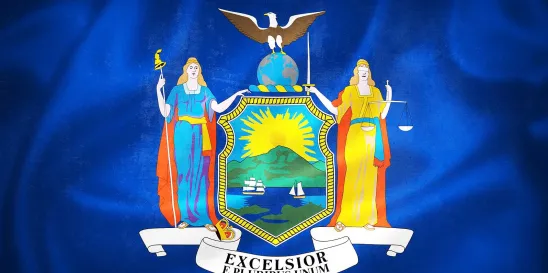New York Governor Kathy Hochul recently signed into law the “Freelance Isn’t Free Act,” which will provide protections for freelance workers, mirroring those already provided in New York City.
Quick Hits
- New freelance worker protection law will require timely payment of contracted compensation.
- Many freelance arrangements will be required to be defined in written contracts.
- The New York labor commissioner will have the authority to investigate and remedy complaints of violations.
Governor Hochul signed the law, Senate Bill (B) 5026 / Assembly Bill (A) 6040, on November 22, 2023, five months after it was passed by the state legislature in June 2023. The signing comes after Governor Hochul had vetoed a prior version of the bill in December 2022, citing the cost of the legislation and the expansion of the New York State Department of Labor’s (NYSDOL) regulatory authority over private contracts between employers and nonemployees.
The statewide “Freelance Isn’t Free Act” is also another example of the state enacting requirements and protections already enacted in New York City, which enacted a similar freelancer protection law in 2016.
The law will be codified as a new Section 191-d of the New York Labor Law and will take effect on May 20, 2024. Here is a breakdown of some of the key requirements.
Freelancers Defined
The law applies to “freelance worker[s],” defined as individuals or organizations, even if comprised of only one individual, “whether or not incorporated or employing a trade name,” who are “hired or retained as an independent contractor by a hiring party to provide services in exchange” for compensation of at least $800, or $800 in aggregate over a period of 120 days.
The law excludes contracts with:
- sales representatives;
- attorneys, or “any person engaged in the practice of law”;
- licensed medical professionals; and
- construction contractors.
The law further defines a “[h]iring party” as “any person who retains a freelance worker to provide any service,” aside from federal, state, and municipal government offices.
Timely Payment of Contracted Compensation
The law will require hiring parties to pay freelancers the contracted compensation “on or before the date such compensation is due,” or “no later than thirty days after the completion” of the work if no date is specified in the contract.
Hiring parties will be expressly prohibited from conditioning the timely payment of compensation on the freelancer accepting to be compensated less than the amount agreed to in a contract once the freelancer has started performing the contracted services.
Written Contracts Required
Under the law, whenever a hiring party retains the services of a freelancer, the terms of their agreement must be “reduced to writing.” Hiring parties will be required to “furnish a copy of such written contract, either physically or electronically, to the freelance worker,” and each party must retain a copy of the written contract.
Such written contracts between hiring parties and freelancers will be required to, “at a minimum,” include:
- the “name and mailing address of both” parties;
- “an itemization of all services to be provided by the freelance worker, the value of the services to be provided pursuant to the contract, and the rate and method of compensation”;
- the date on which compensation is due or “the mechanism by which such date will be determined;
- “the date by which a freelance worker must submit a list of services rendered under such contract”; and




 />i
/>i

